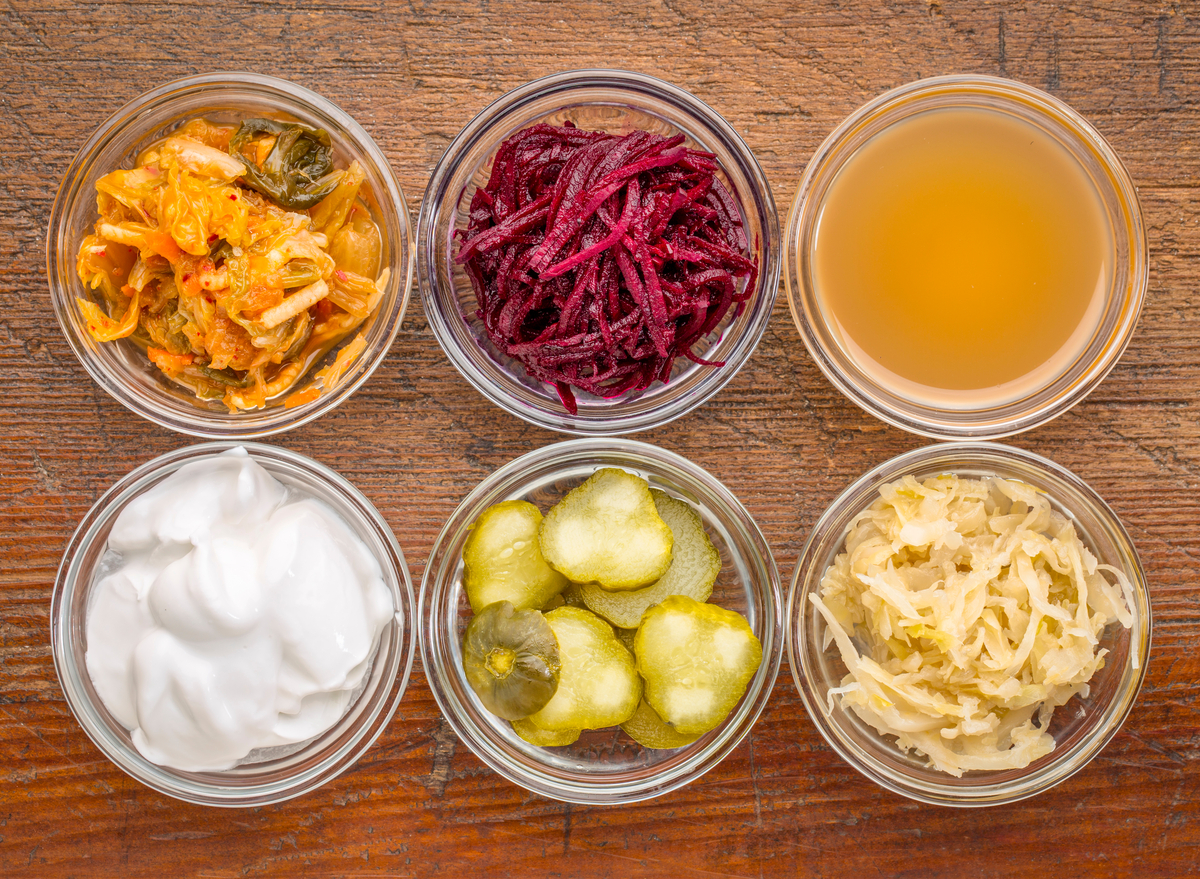One Major Effect of Postbiotics on Your Stomach, Says Science

Prebiotics and probiotics have become fairly well known for their ability to help grow good bacteria in our digestive tracts, which contributes to improved gut health. But postbiotics, which are less frequently studied and not as well-known, also have their own impact on digestive health.
Postbiotics are the waste that is left behind after consuming prebiotics and probiotics, and your body digests them. And while waste might have a negative connotation, postbiotics are beneficial to stomach health in their own regard.
"A major effect that postbiotics can have on your body is to increase the acidity of your stomach," says registered dietitian Janet Coleman, the founder of The Consumer Mag. "This causes the lining of your stomach to produce more mucus, which can help protect you from stomach ulcers and other digestive problems."
Stomach ulcers, or peptic ulcers, are painful sores located in the stomach, esophagus, or small intestine. Some of the symptoms of having a stomach ulcer include nausea, heartburn, and an intolerance of fatty foods.
The increase of acidity in your stomach isn't always beneficial, though. Acid reflux and gastroesophageal reflux disease (GERD), can result from stomach acid flowing from the stomach into the esophagus, which can lead to nausea, heartburn, and chest pain. This may also lead to worse health risks if acid reflux is consistent, including esophageal ulcers, a narrowing of the esophagus, and precancerous changes to the esophagus.
Coleman says that the positive side effects that postbiotics have on the stomach aren't the only benefit of postbiotics, as they also work to promote gut health and regular bowel movements.
"Postbiotics also promote healthy bowel movements by killing off bad bacteria in the colon and eliminating toxins from the body through sweat, urine, and stool," Coleman says.
She adds that one of the ways that people consume postbiotics is as a supplement because taking them in that way is also beneficial for gut health.
"One major effect that postbiotics can have on your body is the production of hydrogen sulfide. This is a toxic gas that's produced by the bacteria in your colon," Coleman says. "Hydrogen sulfide has been known to kill cancer cells and reduce inflammation, which is why some people take it as a supplement."
A French study has found that consuming postbiotics has been helpful in increasing the quality of life for patients diagnosed with irritable bowel syndrome (IBS) with no side effects, showing that probiotics are not only great for stomach health, but gut health as well.
Because they're created by digestion, postbiotics have been found in foods like cottage cheese, sourdough bread, kimchi, yogurt, and fermented pickles. So, if you're eating anything that's been fermented, you're consuming postbiotics and helping to make your gut healthier.









